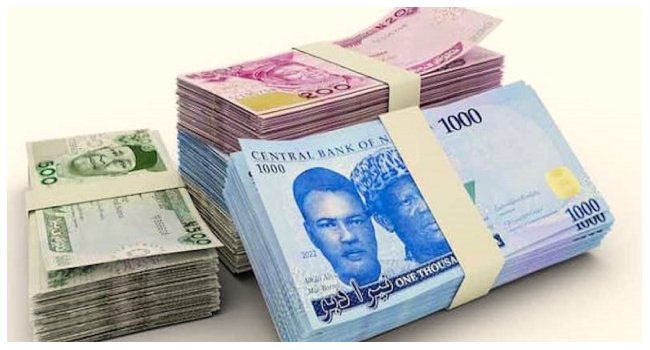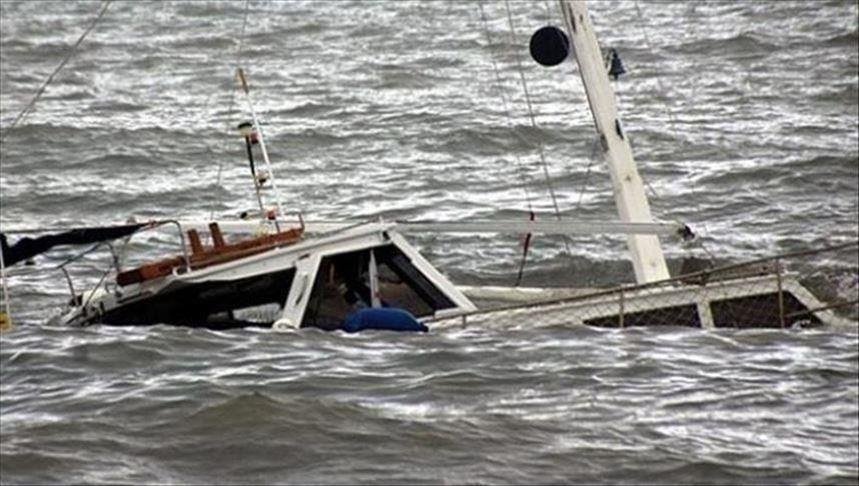Feature photo: African Health Organisation
Nigeria’s war against illicit trade of drugs and other prohibited substances has been gaining a lot of grounds. But amidst this seeming success is a silent cry for help from those who are grappling with the daunting challenge of drug addiction but do not have proper care facilities to rehabilitate and reform them, Jumoke Olasunkanmi writes.
Rising Prevalence: A Disturbing Reality
The 2018 National Drug Use Survey by the Nigerian Bureau of Statistics (NBS) exposed a drug use prevalence of 14.4 percent among individuals aged 15 to 64, translating to approximately 14.3 million Nigerians caught in the web of addiction. Shockingly, close to 3 million of these users were identified as suffering from drug use disorders, emphasising the severity of the issue.
Fast forward to 2021, and the Nigeria Drug Law Enforcement Agency (NDLEA) delivered a stark announcement – 40 percent of Nigerians between 18 and 35 were reported to abuse drugs, indicating a persistent and concerning trend.
Most of these people are dependent on drugs such as cannabis, also known as marijuana, with effects on their health, productivity and social lives.
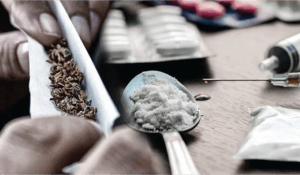
The United Nations Office on Drugs and Crime (UNODC) echoed these concerns in its 2021 World Drug Report. With 11 million cannabis users in Nigeria, of which 3.7 million are regular users in need of drug counseling, the report stressed an urgent need for sensitisation. The lower perception of drug use risks, as highlighted by the report, correlated with higher rates of drug use, underlining the necessity to bridge the gap between perception and reality.
Rehabilitation Challenges
A glimpse into the personal journey of a marijuana addict, Solomon (real name withheld on request), reflects the challenges of withdrawal, the impact of addiction on daily life, and the battle for recovery. It also provides insight into the state of addiction and rehabilitation services available to those seeking them.
In a chat with African Health Report (AHR), he said “I started smoking (marijuana) in 2018. I would take just a few drags and it wasn’t regular, maybe like once in two months. I did it because my friends were smoking and when I’m with them, I’ll just join in. I didn’t think much of it because it was just once in a while.
‘’But by 2019, it became an everyday thing. I’d smoke at least once a day. I used to tell myself that I could stop whenever I want and I wasn’t addicted. Late 2019, I knew it had become a trouble because the only time I wasn’t smoking was when I was sleeping or out to run errands. And when I go out, I was always eager to go back home or go somewhere I can smoke. I knew I needed to do something when my looks started changing, I looked like an homeless person.
‘’In 2020, I started seeing a therapist who recommended that I check into a rehabilitation centre. I went to one in Lagos, I stayed for two months – the first month, I wasn’t allowed to leave the premises at all. I remember that I had a terrible withdrawal symptoms – chills, fever, hallucinations, but I got better, or so I thought.
‘’After I left the centre, I avoided my usual smoke joints and friends that I smoked with as my therapist advised but I relapsed after less than three months. I still smoke but not as much as before and I’m trying to keep it that way. Personally, I don’t know if I’ll say that rehab does not work because I know some guys that I met there who have also gone back to smoking. I just try to limit the number of times I smoke and if I can keep that under control, I’ll be fine.”
The scarcity of public rehabilitation centres in Nigeria makes treatment difficult, paving the way for private institutions and religious rehab centres. These facilities have been reported to have deficiencies in professional methods for rehabilitating drug abuse patients, with many of them subjected to inhumane treatment under the guise of rehabilitation. Recent police operations across the country unveiled the harsh reality; rescuing victims, including children, from chains and torture.
Religious rehab centres face criticism for treating drug addiction as a spiritual problem, employing treatments consisting of prayers and fasting to break free from what is termed a ‘demonic yoke.’
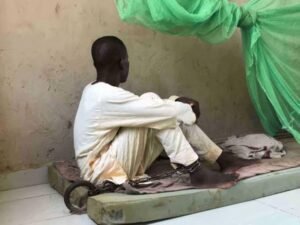
Rehab.com, an American Addiction centre, states that a standard addiction treatment has four phases. First is the Intake stage where the patient is admitted and a series of assessment including medical examination, psychological assessment, and psychosocial assessment is done before a customised treatment plan tailored to meet each individual and their need is drawn.
The next stage is the Detox stage where the patient is purged of all addictive substances. This phase is precarious as the centre warns that patients may experience withdrawal symptoms that can be dangerous. It emphasises that there should be added supervision, monitoring and, potentially, pharmacologic interventions at this stage.
The third stage is Rehabilitation where, with the help of therapy, professionals can uncover underlying issues that led to addiction in the first place, and the final stage, Recovery and Aftercare.
After rehab, patients are encouraged to attend regular post-rehab therapy session to prevent relapse. Solomon could have been prevented from going back to his addiction if he had continued hiss treatment with the post-rehab sessions.
NDLEA’s Approach to Rehabilitation
Criticism has been directed at the NDLEA for prioritising the crackdown on drug syndicates and peddlers, rather than addressing the core issue of rehabilitating drug users. However, NDLEA’s Director of Media, Femi Babafemi, at an interactive session, said the agency has 26 treatment facilities and a toll-free helpline for drug addicts seeking help.
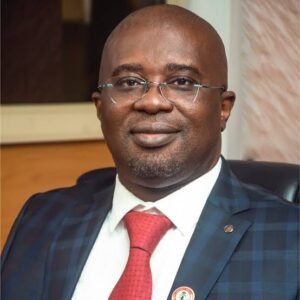
According to him, NDLEA offers access to mental health professionals, providing counseling and support round the clock. However, AHR could not verify these claims before publishing this article.
Addressing Challenges in Accessing Treatment
In a session tackling challenges faced by drug users in accessing treatment, a consultant psychiatrist and mental health advocate, Dr. Abiola Buremoh, identified ignorance and stigma as barriers. She highlighted the shortage of facilities and healthcare workers, particularly in rural areas, impacting the quality of healthcare available to drug users.

Addressing the effectiveness of rehabilitation, Dr. Buremoh emphasised the multi-faceted nature of success, considering factors such as individual commitment, support systems, treatment plans, and the type of drugs used. While acknowledging the chronic relapsing nature of drug addiction, she advocated for continuous interventions, breaking the cycle and offering individuals a fighting chance for recovery.
In Nigeria’s evolving battle against drug addiction, awareness, rehabilitation, and ongoing support are crucial pillars in shaping a future where individuals can break free from the chains of substance misuse.


